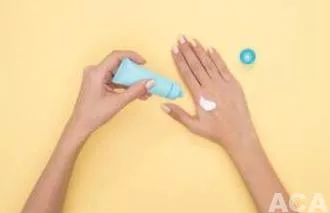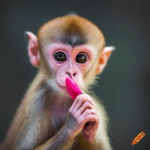From personalized skincare recommendations to virtual makeup try-ons, artificial intelligence (AI) is reshaping the cosmetics and beauty industry. The integration of AI technologies has not only enhanced product development and customer experiences but has also brought forth sustainability initiatives and ethical practices. However, despite its many benefits, AI poses challenges and limitations that need to be addressed. In this article, we will explore the ways AI is transforming the beauty industry, discuss its impact on the customer experience, discus its sustainability efforts, and look at the future implications of AI in cosmetics and beauty.
The Role of AI in the Beauty Industry
AI in Cosmetic Product Development and Formulation

Artificial intelligence has revolutionized the way cosmetic products are developed and formulated. With vast amounts of data and algorithms, AI can analyze ingredient databases, customer reviews, and trends to identify patterns and predict the effectiveness of different formulations. This enables cosmetic companies to create products that cater to specific skin types and address individual concerns effectively. This is how Fibroquin was discovered in a Harvard laboratory.
AI in Personalized Recommendations
Gone are the days of generic skincare routines and makeup suggestions. AI algorithms can analyze a person’s skin condition, preferences, and concerns to provide personalized recommendations. By considering factors such as skin type, age, and environmental influences, AI-powered systems can suggest suitable skincare products or makeup shades that align with the user’s needs. This level of personalization enhances customer satisfaction and increases the likelihood of repeat purchases. You don’t necessarily need an AI to give you recommendations on makeup products. You could simple check out the ACA list of best makeup products of the year.
AI in Cosmetic and Makeup Virtual Try-Ons

Trying on makeup virtually is now a reality thanks to AI cosmetics and beauty apps. Virtual try-on technology utilizes facial recognition and augmented reality (AR) to simulate the application of cosmetics on a user’s face in real-time. This allows customers to experiment with different shades and styles without physically applying the products. AI-powered virtual try-ons and other beauty apps provide a convenient and immersive experience, enabling customers to make more confident purchasing decisions.
Enhancing the Customer Experience with AI
AI-Powered Chatbots and Customer Support
AI-driven chatbots have become an invaluable tool for customer support in the beauty industry. These chatbots can handle basic inquiries, provide product information, and assist with order tracking, offering round-the-clock assistance. By employing natural language processing (NLP) and machine learning algorithms, these chatbots can understand customer queries and provide accurate and relevant responses promptly.
Virtual Beauty Advisors
Imagine having a personal beauty advisor at your fingertips. AI-powered virtual beauty advisors make that possible. These virtual assistants leverage AI algorithms to analyze customer data, preferences, and goals, and provide tailored beauty recommendations. Whether it’s suggesting a skincare routine or guiding users through a makeup look, virtual beauty advisors offer personalized expertise, improving the overall customer experience.
AR Makeup Tutorials
AI and augmented reality combine to offer interactive makeup tutorials. AR makeup tutorials use facial tracking technology to overlay virtual makeup onto the user’s face in real-time. This allows customers to follow step-by-step instructions and learn new techniques without the need for physical products. By bringing professional makeup artists into the digital world, AI-enhanced AR tutorials empower users to explore their creativity and expand their beauty skills.
AI’s Impact on Sustainability and Ethical Practices
Reducing Waste and Packaging
Sustainability has become a pressing concern in the beauty industry, and AI is playing a vital role in addressing this issue. AI algorithms can optimize supply chains, reducing excess inventory and minimizing wastage. By analyzing sales data and demand patterns, AI can help companies streamline production and distribution processes, leading to more efficient resource allocation and reduced environmental impact. Furthermore, AI can assist in developing eco-friendly packaging solutions, promoting a greener approach to cosmetics.
Animal Testing Alternatives

AI has paved the way for alternatives to traditional animal testing methods. By utilizing computational models and machine learning algorithms, researchers can simulate the effects of cosmetic ingredients on human cells and tissues. This revolutionary approach reduces the need for animal testing while simultaneously ensuring product safety. The integration of AI-driven technologies into the beauty industry represents a significant step towards the ethical advancement of the field, fostering a more compassionate approach to product development. With AI at the forefront of innovation, the industry can propel forward while upholding its commitment to animal welfare and human well-being. See ACA Vegan Certified Cosmetics.
Ethical Ingredient Sourcing
Transparency and ethical sourcing are becoming increasingly important to consumers. AI-powered systems can analyze supply chain data, ensuring the traceability and ethical sourcing of ingredients. By verifying certifications, evaluating suppliers, and monitoring labor practices, AI enables companies to maintain high ethical standards. This promotes trust among consumers and encourages the industry to prioritize responsible sourcing.
Challenges and Limitations of AI in the Beauty Industry
Data Bias and Representation
As with any AI application, bias in data and algorithms is a significant concern in the beauty industry. If training data is skewed or lacks diversity, AI systems may perpetuate stereotypes or fail to cater to underrepresented groups. It is crucial to address data bias and ensure inclusive representation to provide fair and accurate recommendations for all consumers.
Maintaining Human Touch and Creativity
While AI brings efficiency and personalization, it is essential to strike a balance with human touch and creativity. The beauty industry thrives on innovation, artistry, and the expertise of talented makeup artists and skincare professionals who possess exquisite skills and knowledge. AI should complement and enhance human expertise rather than replace it, preserving the cherished human element and creative aspects that make the beauty industry truly exceptional and unparalleled. By combining the power of AI with the artistic skill and ingenuity of individuals, we can witness remarkable advancements and breakthroughs that blend innovation and human artistry seamlessly. It is this harmonious fusion of technology and human competence that continues to propel the beauty industry into a world of endless possibilities and evolution. There has been similar advances in AI and plastic surgery.
Privacy and Security Concerns
The collection and analysis of personal data in AI systems raise privacy and security concerns. Beauty companies must handle customer data responsibly, ensuring compliance with data protection regulations and implementing robust security measures. Transparency regarding data usage and providing users with control over their information is crucial to build trust and maintain customer confidence.
The Future of AI in Cosmetics and Beauty
Advancements in Facial Recognition Technology
Facial recognition technology continues to evolve and has vast potential in the beauty industry. AI-powered facial recognition systems can accurately analyze facial features, identify skin concerns, and suggest targeted skincare solutions. This technology enables personalized beauty routines tailored to an individual’s unique needs, fostering a more effective and personalized approach to skincare.
AI-Driven Skincare and Dermatology
AI is expected to bring groundbreaking advancements to the field of skincare and dermatology. Utilizing its proficiency in analyzing skin conditions, genetic data, and environmental factors, AI algorithms possess the capacity to offer highly customized and individualized suggestions for skincare products and treatments. Consequently, the integration of AI-powered skincare solutions has the potential to substantially improve the precision of diagnoses, streamline remote consultations, and ultimately foster the creation of more potent and efficacious skincare remedies next time you visit the med spa. . The continuous progression of AI technology signifies an exciting future for the skincare industry, as it revolutionizes and optimizes the way in which we approach skincare and dermatology practices. Some of these elevated standards are already being incorporated into cosmetics certifications.
AI-Generated Beauty Content
AI-generated content is an increasingly prevalent and influential phenomenon in the beauty industry. The power of AI algorithms is harnessed to decipher and comprehend extensive volumes of beauty-related data, encompassing diverse elements such as customer reviews, prevailing trends, and expert opinions. Through this sophisticated analysis, AI has the remarkable capacity to generate content that is both enlightening and captivating. It extends its reach across various forms of media, all the way from concise product descriptions to in-depth beauty articles. As a result, AI-generated content serves as an indispensable tool for marketers, influencers, and content creators, empowering them with invaluable insights and enabling them to streamline their content creation processes efficiently. Embracing the potential of AI-generated content is an essential step for industry professionals, as it equips them with an edge in keeping up with the dynamic nature of the beauty industry.
Parting Thoughts: AI and the Cosmetics and Beauty Industry
Artificial intelligence has emerged as a game-changer in the cosmetics and beauty industry. It has revolutionized product development, personalized recommendations, and virtual try-on experiences, enhancing customer satisfaction and engagement. AI also contributes to sustainability efforts by optimizing supply chains, promoting ethical ingredient sourcing, and reducing waste. However, challenges such as data bias, maintaining human touch, and privacy concerns need to be addressed. Looking ahead, AI holds great promise in facial recognition technology, skincare advancements, and AI-generated beauty content. As the beauty industry continues to embrace AI, it must strike a balance between technological innovation and preserving the human element that makes beauty a truly personal and creative experience.
AI and Cosmetics, Beauty Products References
https://www.niehs.nih.gov/health/topics/agents/cosmetics/index.cfm